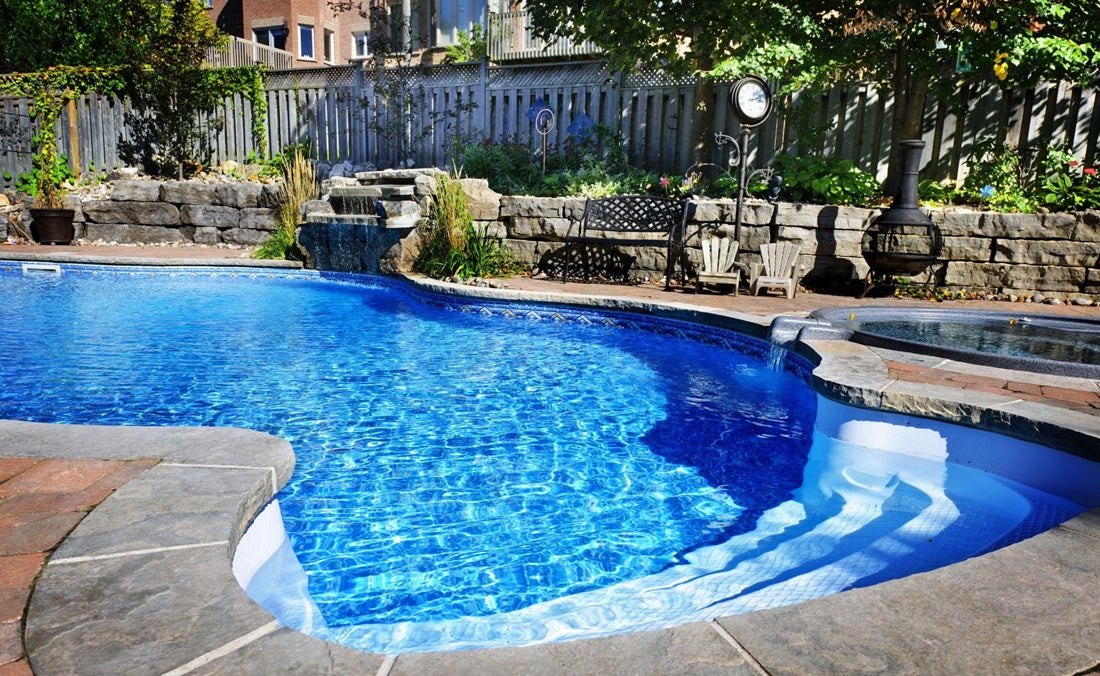A pool heater for your inground pool can be one of the best investments you will ever make. These products are perfect for creating and maintaining higher pool temperatures no matter what the weather looks like outside.
However, they still require maintenance and repairs occasionally. To ensure you get the most out of your pool heater and give it the most extended life possible, we put together a detailed guide for proper inground pool heater care.
Here, we will discuss how to maintain your unit to avoid as many problems as possible. Plus, we offer some great troubleshooting tips for the unfortunate times when it isn't working as it should.
Maintenance for Your Inground Pool Heater
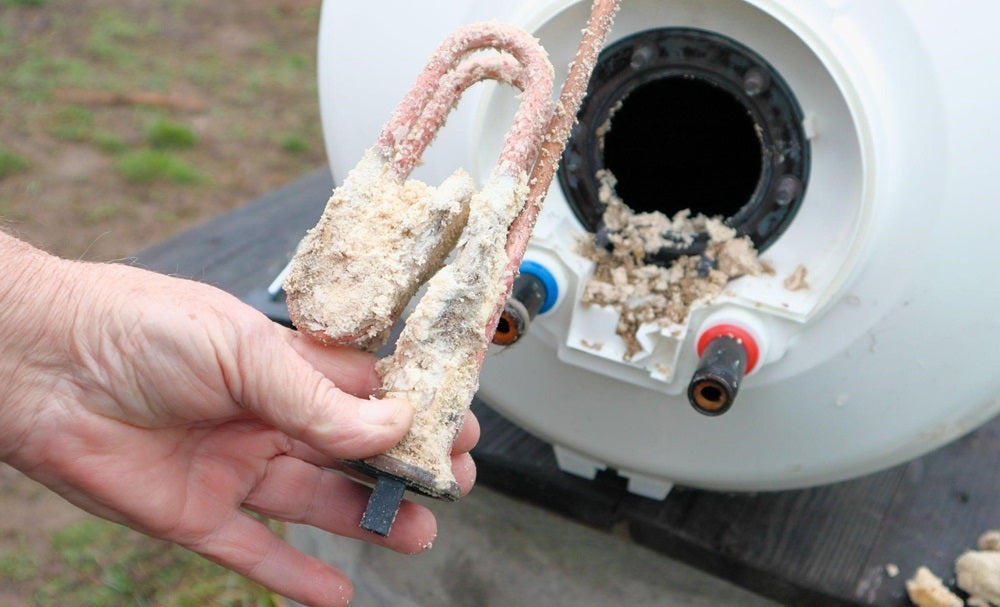
The cheapest way to fix a broken pool heater is to keep it from breaking in the first place.
Following these simple steps, you can keep your pool heater working optimally and avoid costly repairs.
Step One: Make Sure the Heater Is in the Best Location for Maintenance
One of the most important ways to ensure your pool heater is running as it should is to ensure it is positioned in a flat, sturdy location where people, tools, and toys won't interfere or interact with it while in use.
When installing your pool heater, ensure it is in a place where you can easily access it and get to every part that might need maintenance or repairs. The unit should be in a wide-open location with at leastthreefeet of space on every side.
Step Two: Inspect the Intake Ports
Your pool heater has an intake port where the filter pipes connect, allowing water to flow through the unit, heat up, and flow back into the pool.
Over time, these ports can collect debris and will clog. By inspecting this part of the heater frequently and removing any build-up, you can avoid clogs and erosion, which will lead to more significant problems down the road.
Step Three: Clean the Exchanger, Freeing It From Debris and Corrosion
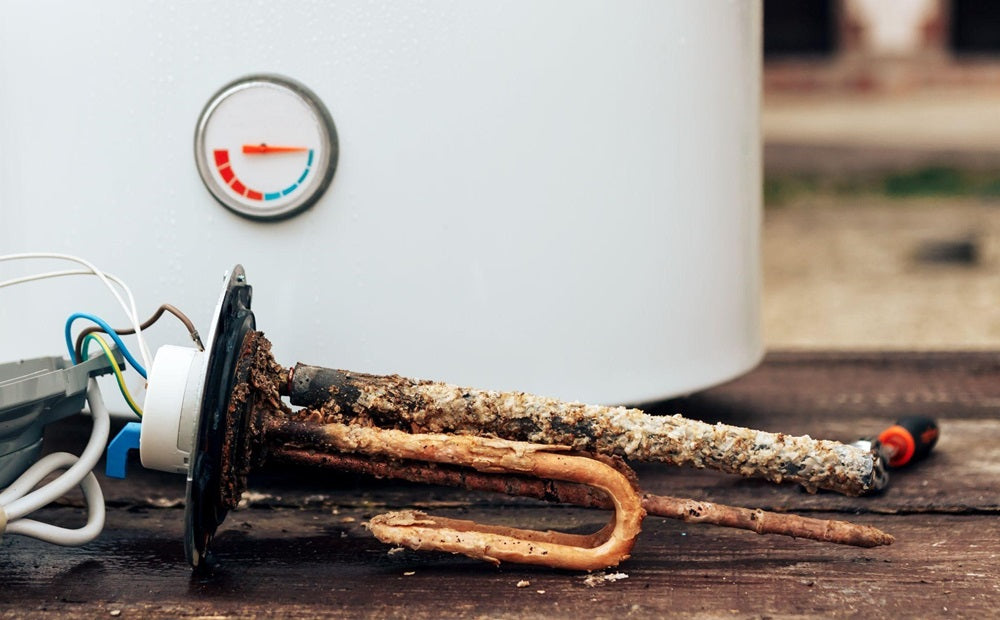
The burners are the primary heat source, warming your pool water temperature as it enters the unit. Over time, these burners can begin to rust.
If you notice any damage to your pool heater's burners, they will need replacing as soon as possible. To avoid unnecessary burner damage, vacuum the unit floor annually, removing debris like leaves, dirt, and rust.
You should also use a wet/dry vac to clean the copper tubing in the exchanger and use a wire brush to tackle the stubborn stuff.
Step Four: Properly Maintain the Pool Filter
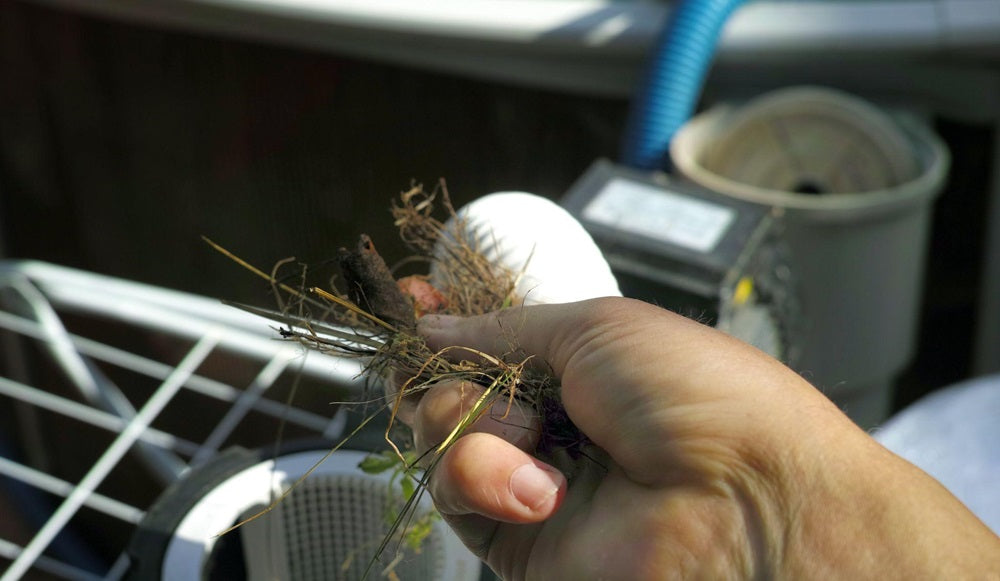
The pool filter is directly connected to the pool's heater. If the pool filter isn't working correctly, the water flow to the heating unit will decrease, leading to significant problems with both products.
One of the easiest, yet often not considered essential, ways to keep your pool filter running smoothly is by utilizing quality pool vacuums and skimming tools.
Maintaining your pool heater regularly will extend the unit's life and save you money on utility bills.
Troubleshooting Your In-Ground Water Heater
Even when you do everything right, there will be times when your pool water heater will break down or stop working at maximum capacity.
Whether the problem is big or small, you can't fix it until you know what is wrong.
Here are some of the most common issues found with in-ground water heaters and how to troubleshoot them.
Power Source Problems
Many times, pool water heater issues are actually issues with the electrical source and not the unit itself.- Make sure the pool heater is plugged in correctly.
- Check the wires to see if there is any damage.
- Check the breaker to ensure there is enough power going to the unit.
- Check the pilot light to ensure it is on; it might need more gas flow.
Check the Temperature Setting
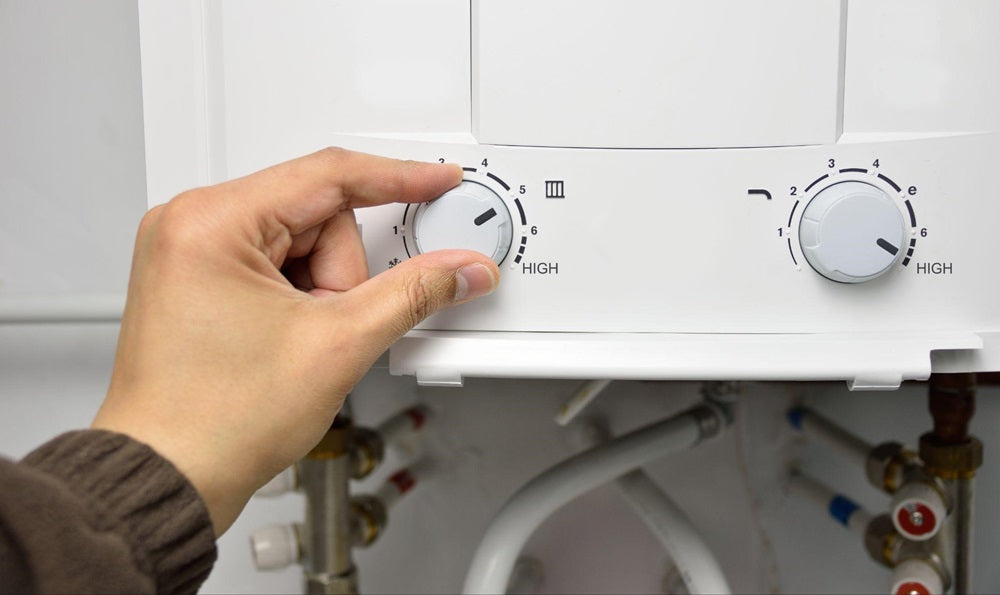
This is another simple yet overlooked problem with pool heaters. If the pool isn't heating up as you want it, the set pool temperature might not be high enough.
Even if you have it set to the ideal temp, if the outside air temp is higher, you will not get the results you are looking for.
What Is the Temperature Outside?
If your in-ground pool is outdoors, the weather will significantly affect how well the heating unit works.
Some water heaters will not perform correctly once the temperature drops below 10°C/50°F while others are durable enough to perform at 1°C/30°F.
Low Pressure and Leaks
Although some leaking in your water heater pipes is expected, too much leaking can cause the water flow to slow down, which can lead to heater issues.
If your water pressure is too low when returning from the heating unit to the pool, check for leaks, a clogged filter, or debris stuck somewhere inside the unit.
Clean the Heater Filter and Exhaust
Pool heaters have their own filters, which can also become clogged or dirty. If your heater isn't getting as warm as you would like, try cleaning the filter and see if it helps.
If your pool heater emits black exhaust, the vents might not be working correctly, and too much heat builds up.
Quick Tips to Help Your Pool Stay Warm
As a pool owner, one of the best ways to help ensure your pool heater continues to work as well as it did on day one is by providing some assistance.- Only turn the heater on an hour before you enter the pool and shut it back off once finished.
- Outdoor pools can quickly heat up with a solar heat cover or solar pool heater on sunny days, reducing the need for consistent use of the heating unit.
- Use landscaping, fencing, or other structures to block cool winds from moving across the pool.
- Never crank the temp to heat your pool faster; leave it at the setting you like and let it warm up that way.
The Best Pool Products Will Ensure Low Maintenance and Fewer Repairs
To avoid costly repairs as a pool owner, you must maintain your pool heater properly, whether you're using a propane heater, solar heater, or electric heater.
The best way to ensure you are doing everything right is by following the manual provided by the company that manufactured the heating unit.
When you need a quality pool heat pump or feel stuck with maintenance or troubleshooting on the one you have, contact the experts at Pool Products Canada.
They can also help you out with questions about pool accessories, pool water treatment, pool cleaner, pool kits, pool games, and much more.

